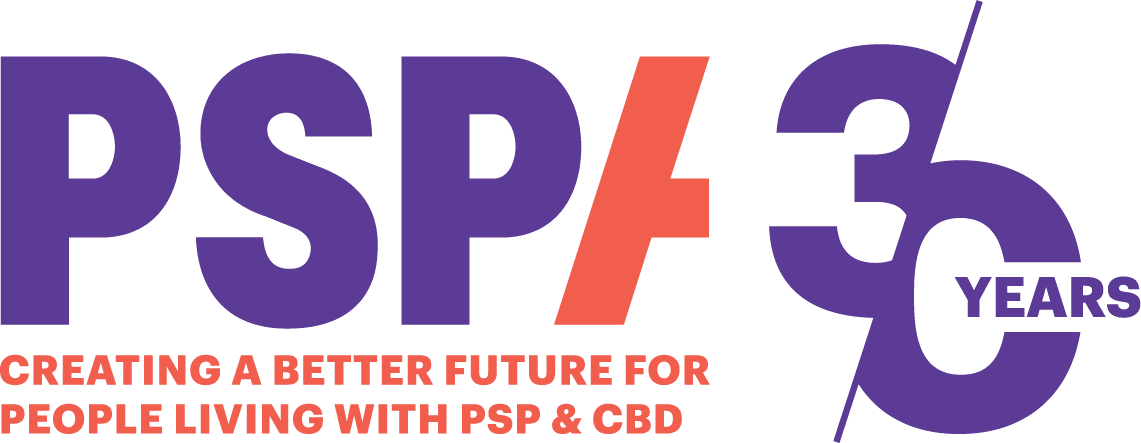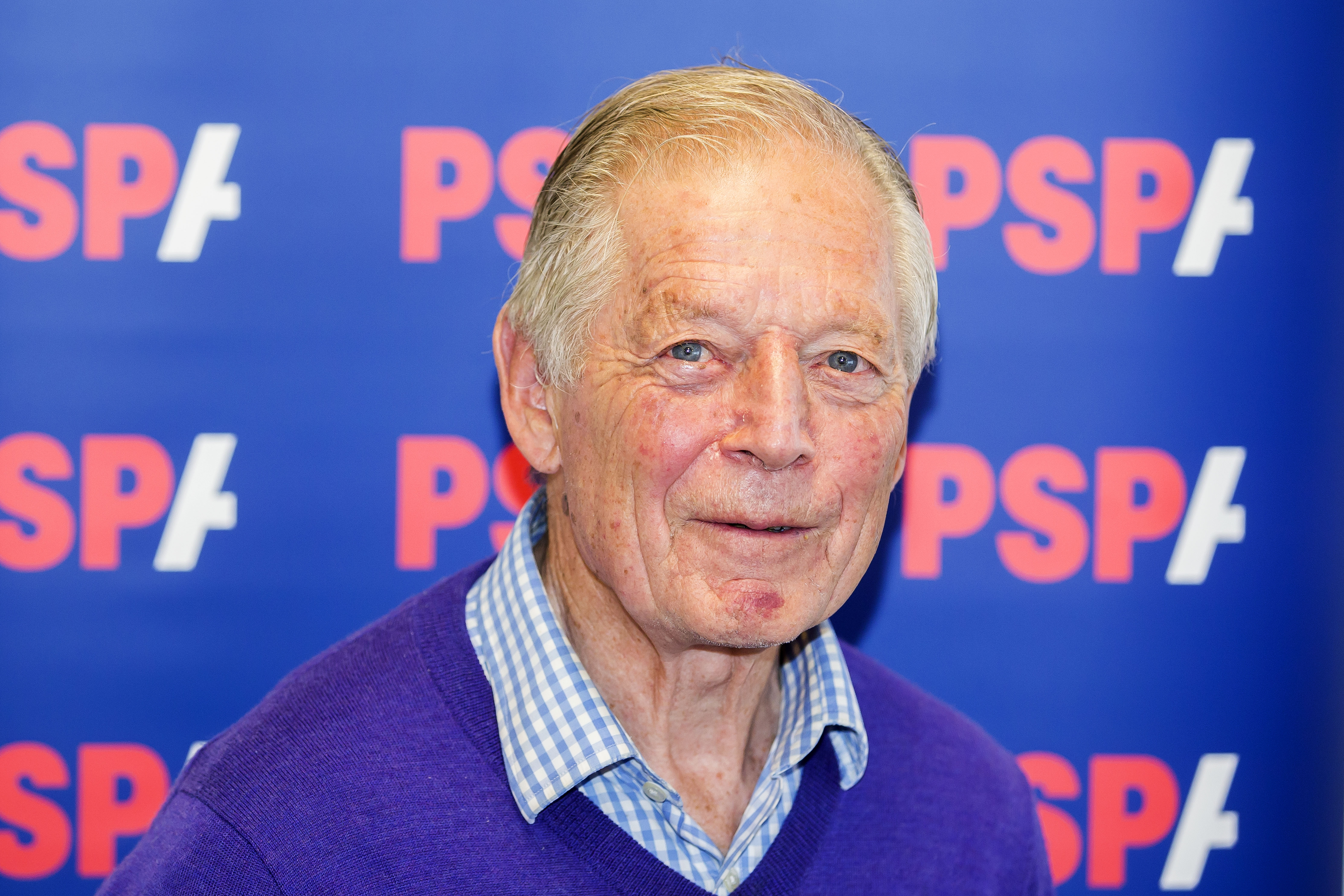“We were so upset that no one seemed to know or care about PSP.”
When Sara Koe received her diagnosis of PSP, both Sara and her husband Michael were surprised and shocked at how little awareness and support for those affected existed.
Driven by their own devastating experience, they decided to set up a charity from their kitchen table with three aims: promote and sponsor research into the cause, treatment and cure of PSP; raise awareness among the general public; and provide information and support across the UK for families affected. Michael explained how the Charity began and how it helped give him a focus after Sara died.
“My wife, Sara and I moved from London to Gayton Manor, a beautiful Grade I listed building in South Northamptonshire. It was where we had planned to spend our retirement and where our story with PSP really began. During the renovation, Sarah hit her head on the corner of some scaffolding and needed a couple of stitches. However, either because of or just after that, Sara began to have problems with balance, speech and swallowing, all of which got steadily worse.
“Her balance became very poor with unexpected falls. She developed a dislike of bright lights and found it difficult to look up and down without moving her head. Then her problem swallowing worsened. I took her to the doctor and local neurologist – no one seemed to know what the problem was. It was suggested by one doctor she possibly had early onset Parkinson’s. That was the closest she had to a diagnosis until my son, Jamie, got in touch with Prof Martin Rossor, a distinguished neurologist. He invited Sara to spend a week in The National Hospital for Neurology in Queen Square, in London, the main centre for neurology in the UK. Prof Rossor and Prof Andrew Lees finally made a firm diagnosis of PSP. Hearing that diagnosis was pretty bleak. I had to try and explain to Sara their diagnosis and its implications as I drove her back to Gayton. I think she knew it was grim news anyway.
“I then learnt there was a PSP Association in Baltimore. There was talk that Dr Irene Litvan there was close to a cure. I flew over to Baltimore while our sons came to look after Sara. Unfortunately, upon arriving it soon became clear that there was no potential cure. By the time I returned home, things had got worse. Sara’s swallowing had deteriorated and her propensity to fall increased. It was quite frightening for her.
“We tried everything from alternative medicines to special therapies, like laying on hands to see if anything would slow the progression of the disease or even stop it. Sadly, all turned out to be –for her anyway – a waste of time (and money!). Both Sara and I were upset that no one knew, or seemed to care much about PSP. Progressive Supranuclear Palsy is a difficult and awkward name for what is a particularly nasty brain disease. We were keen to do something to draw public attention to it and help others living with PSP. We also were determined to raise awareness and funds for research into this devastating disease.
“A year before Sara died, I asked our local MP, Michael Morris, if he would be willing to help us set up a new charity. He agreed to do his best and Chair such a Charity. Many other friends also helped, including Sir Michael Carlton Smith who was then CEO of Marie Curie and James Stanford who was Chief Executive of The Leonard Cheshire Foundation. My neighbour Sir John Greenaway offered to become our treasurer. Soon we had a committee and held our first ever meeting at the Marie Curie offices in Belgravia. We each put in £25 and the charity began. Despite her rapid progression with PSP, Sarah managed to come to our first meeting. We agreed on the charity’s objectives.
“Sadly, it was around that time that we realised we could no longer live in Gayton Manor with its stone stairs and steps. It was just too big for Sara and I to cope with, along with our four boys and a dog. So, we sold and moved to nearby Wappenham to a smaller and more manageable house. We had a through floor lift fitted so Sara could take her wheelchair upstairs, but all the time she was getting worse. In January 1995, she died in Northampton General Hospital where she had been admitted a couple of days before. My son Jamie, who was visiting, and I drove sadly back to the hospital, where I had said goodnight a few hours earlier – she was just 54. It was a miserable time. During those dark days after Sara died, PSPA saved me. It took a huge amount of my time and effort, and was something positive to focus on.
“We established an office in an outbuilding at my home. That continued to be the charity’s office for the next 15 years until we outgrew it and moved to a bigger building in Towcester. Prof Andrew Lees who had, with Prof Martin Rosser became our Chief Medical Adviser. Prof Martin Rosser joined our Medical Advisory Panel. We later set up the Sara Koe Research Centre next to Andrew’s offices.
“Field Marshal The Lord Bramall, whom I had served with, became President. His office approached HRH, The Duchess of Gloucester to ask if she would be our Royal Patron. She accepted and attended one of our early fundraising events at Grosvenor House Hotel in London. I’m very happy to say she is still our Royal Patron today.
“Our first major fundraising event was the Magnolia Ball in Stowe School. Sara loved magnolias and asked for them to be our emblem. This event helped us raise worthwhile funds and was a brilliant setting for some of our further events. We held several medical workshops there later.
“My four sons, Simon, Jamie, Richard and Digby helped raise funds by running the London and New York Marathons. Richard, with some friends, later took part in the Marathon des Sables, one the toughest events, involving three marathons across the Sahara while carrying food and bedding over a hundred miles in the scorching desert sun. Before their first marathon, I contacted Seb Coe and asked if he would ‘coach’ my four sons immediately outside The Houses of Parliament, as a PR exercise to help raise awareness. I’d booked a photographer and the training session ended up in the newspapers. At this stage, Seb had no personal connection with PSP, but in a quite extraordinary coincidence, a few years later, his own mother would receive a diagnosis of PSP and sadly die from it. Seb was very supportive. He went on ‘Who Wants to Be a Millionaire’ and raised some £400,000, which, with his agreement, we used to fund our new office in Towcester.
“We employed two nurses, Maggie Rose and Grace Lewis, and started to set up Local Support Groups. We wanted these groups to be run by local people and for those in the area with PSP and their families to be supported by the local community. I remembered what it was like when Sara was diagnosed with PSP, so I was happy to contact anyone with PSP to tell them about the charity and how we could help them. Now that role is fulfilled by our Helpline.
“Of course, over the last 25 years there have been lots of changes. The charity is now based in Milton Keynes, its CEO is Andrew Symons and my eldest son Simon is now its Chair. It supports many more people with PSP, and now those with the closely related CBD too. I am very happy that Simon is now its Chair, with an impressive group of Trustees. He keeps me up to speed about what is happening.
“I was delighted to attend the impressive two-day research symposium held last October at the Royal College of Physicians, with world-leading neurologists from America and Europe. Our Patron HRH The Duchess of Gloucester came to open this two-day gathering and I was very happy to listen to the many top neurologists speak at the two-day event. It really bought home to me the impressive progress being made in research into the cause and cure of these devastating brain diseases. Effective treatment and cure are moving tantalisingly closer, something I know we all long for.”





